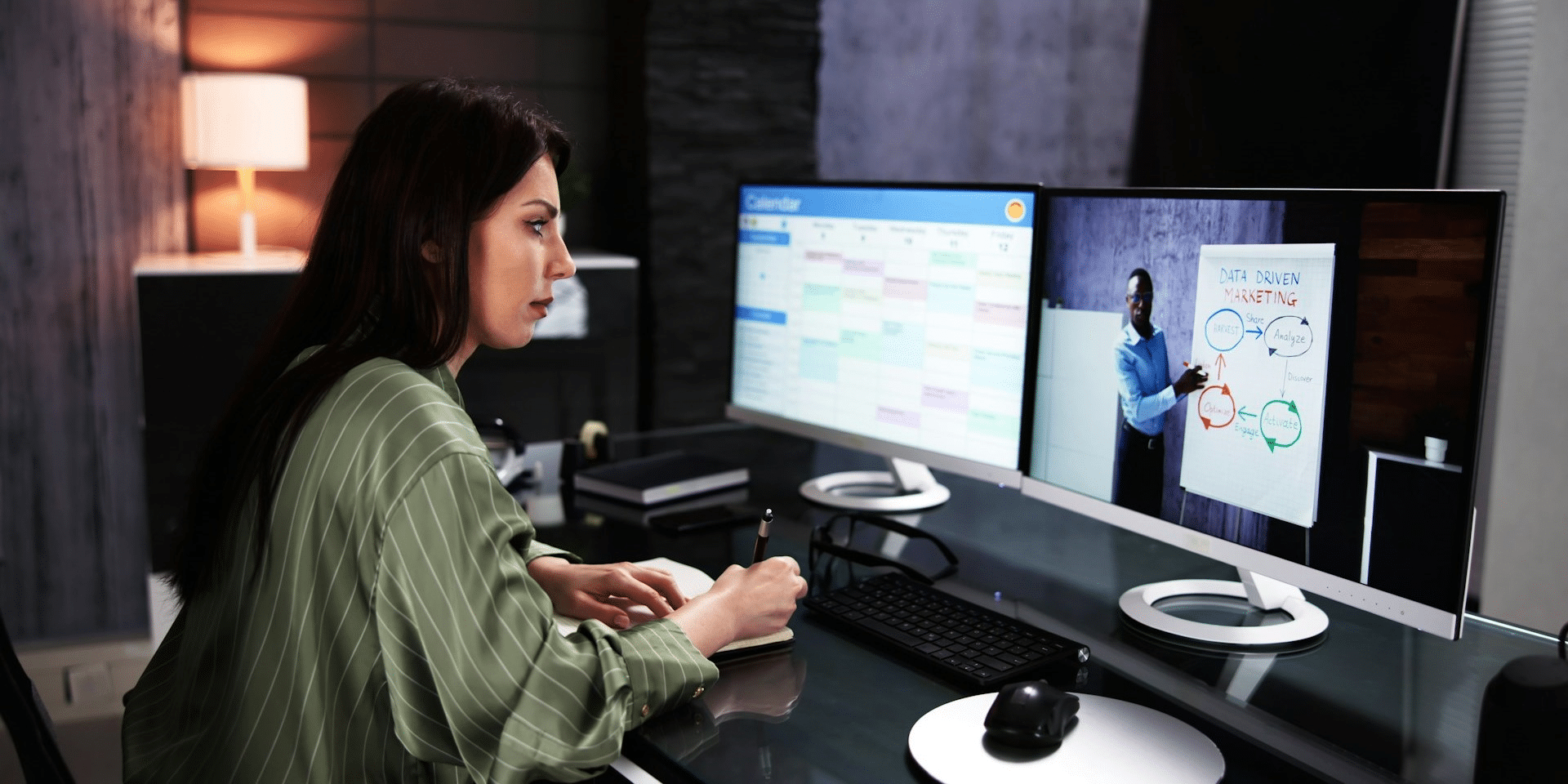Image commercially licensed from Unsplash
The workplace as we know it is constantly evolving, driven by advancements in technology, shifting demographics, and changing work patterns. As we look toward the future, it’s evident that several significant changes will reshape the way we work. In this blog post, we’ll explore key things that are set to transform future workplaces, revolutionizing the employee experience and redefining traditional notions of work.
Remote Work Becomes the Norm
The COVID-19 pandemic accelerated the adoption of remote work, and its influence is likely to endure. Many companies have realized the benefits of a distributed workforce, including increased productivity, reduced overhead costs, and access to a global talent pool. In the future, remote work will become even more prevalent, with organizations developing robust virtual collaboration tools, reimagining workspaces, and implementing flexible work policies to accommodate remote employees.
Companies will invest in advanced communication and project management platforms to foster seamless collaboration among remote teams. Virtual reality (VR) and augmented reality (AR) technologies will enable immersive virtual meetings, allowing employees to interact as if they were physically present.
Automation and Artificial Intelligence (AI)
Advancements in automation and AI technologies are reshaping the nature of work. Companies will manage software robots to handle repetitive, rule-based digital tasks, freeing up employees to focus on higher-value activities that require critical thinking and creativity. AI-powered tools are augmenting decision-making processes, provide insights, and streamline workflows. In the future, the integration of automation and AI will transform various industries, leading to the creation of new job roles and the need for upskilling and reskilling.
Automation will not only enhance efficiency but also improve safety in hazardous work environments. Robots and autonomous vehicles will take over dangerous tasks, reducing the risk of injuries. AI algorithms will assist in data analysis, identifying patterns, and making predictions, enabling organizations to make data-driven decisions. As automation takes hold, emphasis will shift towards developing skills that complement machines, such as complex problem-solving, emotional intelligence, and creativity.
Emphasis on Well-being and Mental Health
Workplace well-being and mental health are gaining increasing attention. Employers are starting to recognize the importance of fostering a supportive and inclusive environment that prioritizes employee well-being. In the future, organizations will invest in initiatives such as mental health resources, flexible work hours, and stress management programs.
Moreover, technology will play a crucial role in monitoring and addressing mental health concerns, with the introduction of AI-driven tools for stress management and personalized well-being plans.
Gig Economy and Freelancing
The rise of the gig economy and freelancing is transforming the traditional employment landscape. More individuals are choosing flexible work arrangements that allow them to have greater control over their schedules and pursue diverse projects. In the future, the gig economy will continue to expand, with companies adapting to this trend by developing platforms that connect employers with freelancers. Organizations will need to embrace agile talent strategies, enabling them to tap into the gig workforce while maintaining productivity and collaboration.
Companies will establish hybrid work models that blend permanent employees with gig workers, leveraging the specialized skills and expertise offered by freelancers. Online marketplaces will emerge, providing a streamlined process for matching projects with freelancers.
Collaborative and Agile Workspaces
The future workplace will prioritize collaboration and agility. Cubicles and closed-off offices will make way for open, flexible spaces that foster creativity, innovation, and teamwork. Employers will invest in technologies that enable seamless communication and collaboration, such as virtual reality (VR) and augmented reality (AR) tools. Agile methodologies will become the norm, with teams embracing iterative approaches, cross-functional collaboration, and continuous learning to adapt to changing market dynamics.
Workspaces will be designed to encourage spontaneous interactions and collaboration, featuring open layouts, comfortable breakout areas, and shared spaces for ideation. Digital collaboration tools will facilitate real-time collaboration, enabling employees to work together seamlessly, regardless of their physical location.
Ethical and Sustainable Practices
As sustainability becomes a pressing global concern, future workplaces will place a greater emphasis on ethical and sustainable practices. Organizations will strive to reduce their carbon footprint, adopt eco-friendly policies, and promote social responsibility. Sustainable practices will extend beyond environmental efforts to include fair labor practices, diversity and inclusion initiatives, and responsible use of technology. Consumers and employees will increasingly demand transparency and ethical behavior, shaping the way companies operate and engage with stakeholders.
Companies will implement environmentally friendly practices, such as reducing waste, conserving energy, and embracing renewable resources. Supply chains will be scrutinized for ethical sourcing and fair labor practices. Diversity and inclusion will be embedded in corporate culture, with organizations actively seeking diverse talent and creating inclusive environments. Responsible use of technology will involve data privacy measures, algorithmic fairness, and cybersecurity protocols. Stakeholder engagement will focus on transparent communication, building trust, and addressing social concerns.
The future of work holds exciting possibilities. Remote work, automation, well-being, the gig economy, collaborative workspaces, and ethical practices are all set to shape the workplaces of tomorrow. Embracing these changes and leveraging technology to create inclusive and sustainable work environments will be crucial for organizations to thrive in the dynamic and evolving landscape of the future. By staying adaptable and forward-thinking, businesses can position themselves at the forefront of this transformation and harness the full potential of the future of work.











